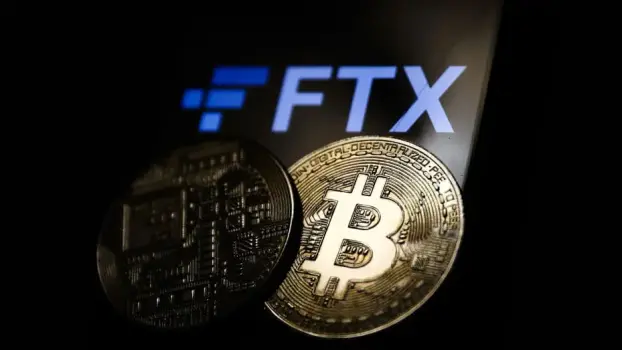Weekly Wrap-up: Bitcoin drop, MiCA regulations
The crypto market has witnessed a combination of bearish and bullish trends in the past week, with Bitcoin experiencing notable price fluctuations.

Bitcoin Price Action
Over the week from April 14 to 21, Bitcoin's price declined by ˜9% and traded at ˜US$28k on Friday. The liquidation of over US$266mn worth of long positions has been attributed by some analysts to increased leverage. Despite the decrease, experts such as John Isige from crypto trading platform Vauld predict that Bitcoin could rebound above the US$30k mark, identifying US$27.5k as a critical price level to monitor this week.
The global crypto market capitalization reached US$1.19 trillion, a 7% decline from US$1.28 trillion a week before. Bitcoin's market cap constituted 45.73%, while Ether's accounted for 19.4%. Bitcoin's trading volume surpassed US$10 billion, currently trading around US$27.5k. Technical indicators, including the 50-day moving average of ˜US$27k and the 200-day moving average of US$21k, suggest a bullish streak for the digital asset.
Conversely, some analysts predict a potential pullback below US$20k. Glassnode's latest data shows that the Bitcoin supply active in the last two to three years reached a 2-year high, implying that many investors may be moving their coins and selling them in anticipation of increased sell pressure. The recent long liquidations drop-off, however, indicates that sell pressure might decelerate.
MiCA Crypto Regulations in the EU
The European Parliament recently voted in favor of the Markets in Crypto Assets (MiCA) framework, aiming to standardize regulations for crypto assets across the world's third-largest economy. As a significant trading bloc, the EU's regulations frequently have global implications, with MiCA poised to establish a new standard for crypto regulations worldwide.
Crypto exchanges have responded favorably to the new framework. Coinbase referred to MiCA's passing as a "pivotal moment for crypto in the region," while Mark Jennings, Kraken's Head of European Operations, believes that MiCA could become "a universal standard for customer protection and business efficiency" shortly.
The US Regulatory Landscape
The growing interest in European crypto regulations underlines the lack of regulatory clarity in the United States, potentially hindering the growth of crypto businesses in the country. Coinbase CEO Brian Armstrong has emphasized the need for a clear rulebook for the crypto sector in the US, warning that the country cannot afford to fall behind on this crucial technology.
As US authorities fail to provide a way forward, crypto investment increasingly pivots to Asia. Companies such as Bitget and ProDigital Futures have announced venture funds and investment plans in the region, signaling a potential shift in the global crypto landscape.
Conclusion
The EU's MiCA framework is poised to set a new standard for crypto regulations worldwide, putting pressure on the United States to provide clearer guidance for the sector. Investors and market participants should closely monitor Bitcoin's price movement and the impact of regulatory changes on the broader crypto market.
While the US remains a key player in the crypto world, it is essential for the country to develop a clear regulatory framework to stay competitive in the global market. In the meantime, Asian markets are emerging as attractive destinations for crypto investments, further emphasizing the need for regulatory clarity in the United States.
In conclusion, the crypto market continues to evolve rapidly, with market fluctuations, emerging projects, and regulatory developments shaping the landscape. Investors and market participants should stay informed about these changes to navigate the complex world of digital assets effectively.
About digitra.com
We are a global cryptoassets exchange. We became the first business worldwide to use NASDAQ’s technology to offer cryptocurrencies trading. We are also the first exchange not charging trading fees, keeping our clients assets with Fireblocks, the main institutional cryptoassets storage company in the world, and also having insurance for those assets.
Therefore, we built a governance level in the crypto market only compared with that of traditional financial institutions.



